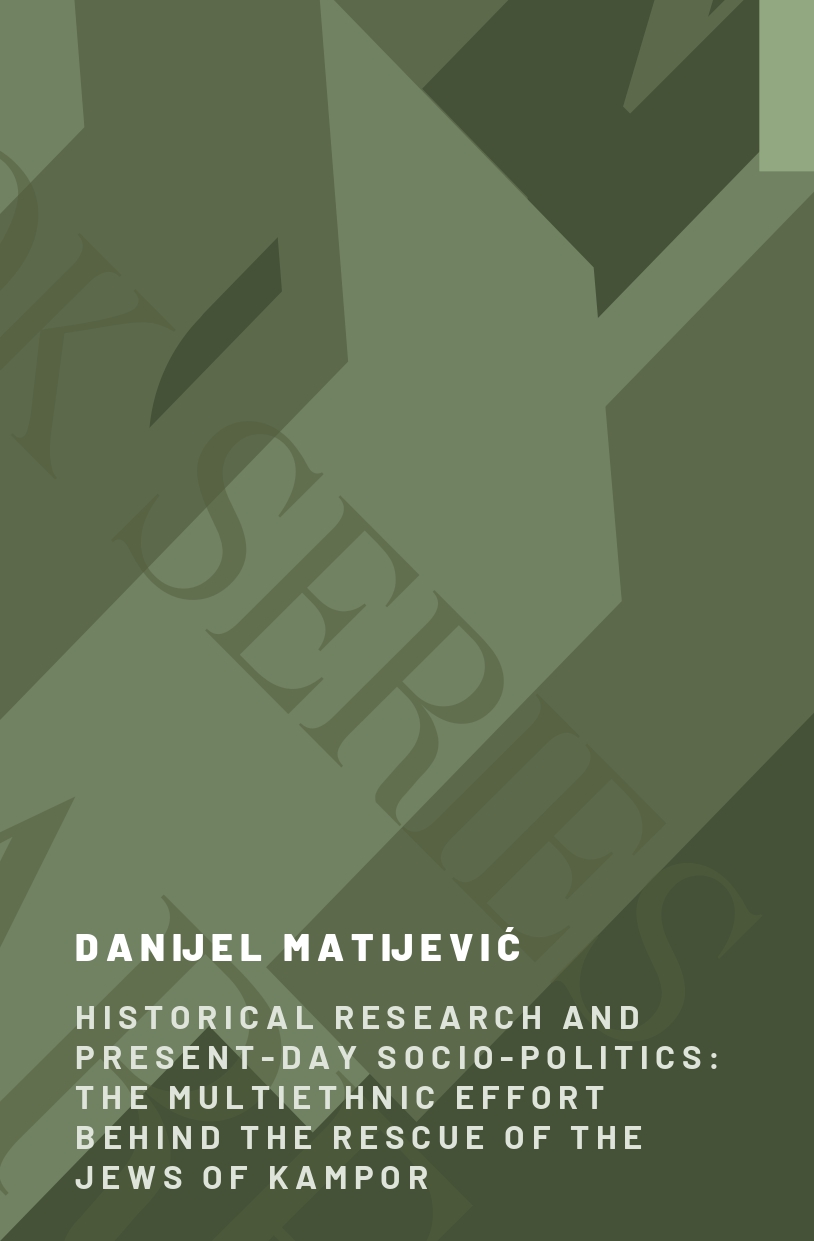
Historical Research and Present-Day Socio-Politics: The Multiethnic Effort Behind the Rescue of the Jews of Kampor
SDGs: SDG 10, SDG 16 Author(s): Danijel Matijević Thematic Area: Active Citizenship and Democratic Institutions, Education, Social Criticism Published: 2024 ISBN: 978-86-82324-78-2 Pages: 13 Language: English Publisher: Institute for Philosophy and Social Theory, University of Belgrade Tags: book | More DetailsThis study examines the multiethnic effort behind the rescue of approximately 2,500 Jewish prisoners from the Kampor concentration camp on the island of Rab during World War II. Organized by the Yugoslav Partisan resistance following Italy’s capitulation in 1943, the rescue operation depended not only on military action but also on widespread civilian solidarity across ethnic and religious lines. The Jewish survivors were sheltered in the regions of Kordun, Banija, and Lika by local populations, including Serbs, Croats, and Bosniaks, underscoring the role of intergroup cooperation in times of crisis.
The historical narrative challenges nationalist and exclusivist accounts of the war, providing an alternative framework that emphasizes coexistence, collective resilience, and cross-ethnic collaboration. By doing so, the study holds significant contemporary relevance, particularly in the context of the United Nations Sustainable Development Goals (SDGs)—notably SDG 16 (Peace, Justice, and Strong Institutions) and SDG 10 (Reduced Inequalities)—by illustrating the role of inclusive historical narratives in fostering social cohesion and countering divisive politics.
Moreover, the findings align with key European Union integration principles, particularly those concerning historical reconciliation, minority rights, and the promotion of democratic values in the Western Balkans. In a region still grappling with the legacies of war and ethnonationalism, the case of the Kampor rescue underscores the importance of multiethnic solidarity and offers lessons for contemporary public policy efforts aimed at strengthening interethnic dialogue, fostering shared historical narratives, and reinforcing democratic institutions. Consequently, governments, academic institutions, and civil society actors must actively promote complex and inclusive historiographies as part of broader efforts to build resilient, democratic, and multiethnic societies.
Back
